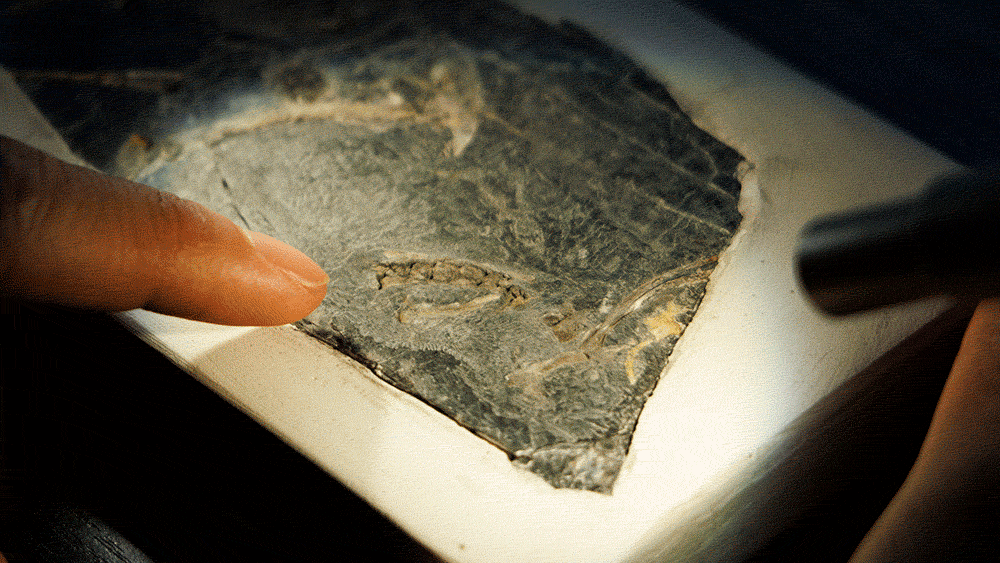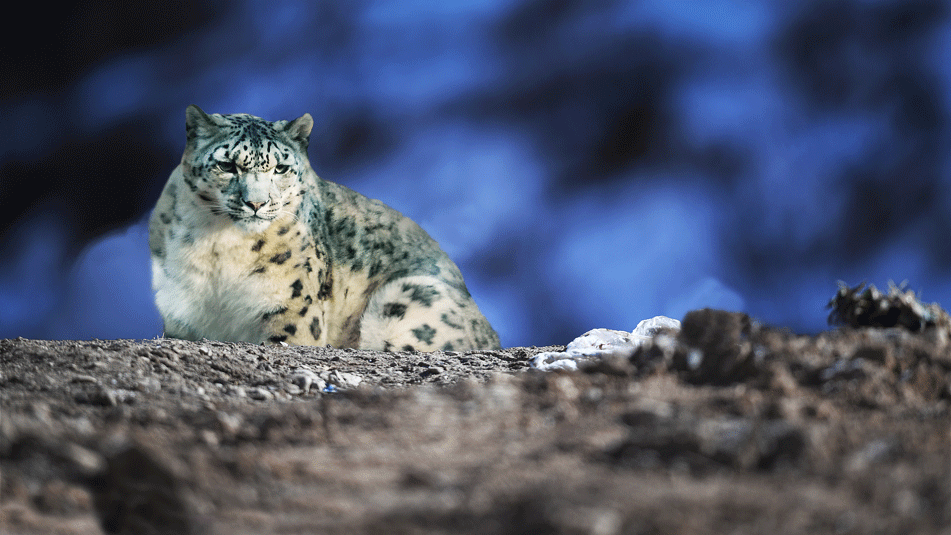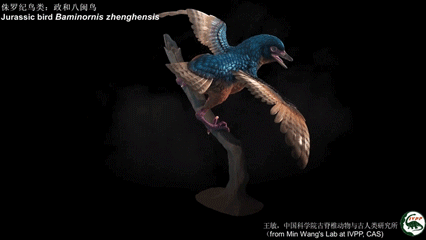
The New Breed of Handlers Preening China’s Prize Pooches
HUBEI, Central China — With her bushy beard, expressive eyes, and wavy coat, Feifei enters the ring and walks a lap. Set up outside a shopping mall in downtown Wuhan, the show makes some shoppers stop in their tracks to snap photos of Feifei. “What’s going on here?” one asks. “It’s a dog beauty pageant,” a middle-aged woman responds, carrying a toy poodle in her arms.
Feifei’s handler leads her to the judges’ table, where the dog strikes a pose as a judge, flown in from Latvia, checks Feifei’s teeth and makes sure her bones are properly proportioned. Spread out in the mall area, other dog handlers — themselves looking their best in sharp suits and dresses — are busy with last-minute preparations. A corgi visibly enjoys getting its butt brushed, and a Doberman pinscher is sprayed with water to cool down.
These 200-or-so purebred pups are the pampered pioneers of China’s growing love for dogs. As the number of pets — now estimated at around 100 million — is ever on the rise, more and more people are willing to pay a small fortune to own a standout dog. Shows like the one in Wuhan attract owners eager to have champion dogs, and kennels who want to show off their breeding prowess. Audiences are slowly catching on.

Feifei is a 2-year-old miniature schnauzer whose coat shades from gray to white. “She must feel like a supermodel on the stage,” says Wang Xu, Feifei’s handler and owner. At China’s dog shows, dogs compete at the breed level in the morning. After that round, each Best of Breed winner advances on to the group stage, wherein the dogs are separated into sporting, hound, and other categories. The winners of that round then compete for Best in Show. Feifei has won the top award four times.
Dog shows have a long history in the West. The first English dog show took place in Newcastle in 1859, and every year, thousands of dogs fill New York City’s Madison Square Garden for the annual, multi-day Westminster Dog Show. In China, however, the events are a new phenomenon. The Wuhan show is one of about 80 shows organized around the country by China Kennel Union (CKU) — a nonprofit established in 2006 that’s the only recognized Chinese member of the Fédération Cynologique Internationale (FCI), the World Canine Organization. Whereas the Westminster Dog Show is nationally televised and has a large, paying live audience, CKU’s shows are free, and likely wouldn’t attract any viewers were they not organized in downtown shopping areas, says Wang. But the number of shows is growing.
Much like the shows, being a dog handler is a relatively new occupation in China. Fewer than 100 handlers are full-timers like Wang. “Presenting dogs in a show is just a part-time job or a hobby for most dog handlers in China,” the 33-year-old says. In Wenlin, the village in suburban Wuhan where Wang lives and trains his and his clients’ canines, people think he walks dogs for a living. “They don’t understand that dogs can be showed or should be groomed,” Wang says with a shrug.
To prepare the dogs for top performances, handlers give them daily exercise, obedience training, and continuous grooming. It can be physically demanding work, and requires passion and patience. “The dogs I train come in all sorts of different personalities and tempers, so dog handlers need to be able to communicate with dogs on a spiritual level,” says Lu Bing, who became a dog handler in 2015 after learning from Wang.
But dog handlers are well-compensated, mostly from the fees they charge owners for taking care of their pets, which can be more than 10,000 yuan ($1,450) a month. Depending on how many dogs they manage, the best handlers in the industry can earn over a million yuan a year. Wang has six dogs of his own, all schnauzers, and handles up to 14 dogs from clients — a self-imposed limit to make sure they all get enough care and attention.
Growing up in the Hubei countryside, Wang’s family had mutts, though back then he had no concept of dog breeds. In 2012, Wang was getting tired of working as an engineer in a state-owned company. He decided to learn from his sister, who is a schnauzer breeder, and later to become a handler. “I feel happier and less stressed when I am with dogs than humans,” he says, adding that, purebred or not, “emotionally speaking, I love them all.” In 2015, he became the first A-level dog handler in Hubei province — the top level as certified by CKU.
For every breed there are particular techniques to achieve the best look. For schnauzers like Feifei, it’s all about the back hair, which is tangled and thick in its natural state. About three months before she is to compete, Wang will pull out most of the hairs on her back — which he says is slightly painful but bearable for the dog — so new hairs will grow and form a neat, needle-like coat come showtime.

Dogs are judged on their posture, appearance, expression, and pace. Whenever Wang gets a new dog, he’ll first conduct a series of inspections — such as the dog’s bone structure, waist circumference, and ear and eye spacing — to check whether the dog meets its breed’s standards, which are determined through the FCI. The dog’s character is also crucial. “If a dog is too stubborn and refuses to change after a period of training, it can’t compete,” says Wang.
Wang competes in about 30 shows a year, and has so far won over 200 Best in Show awards. There’s no prize money. Instead, he’s been rewarded with trophies, dog food, promotional items in every shape and form, and even the latest iPhone. “It’s not about the money,” he tells Sixth Tone. “I just want to present the dogs’ best sides and enjoy the show.”
But winning can be profitable. Wang Lin — not related to or a client of Wang Xu — is the manager of a kennel in Wuhan that’s registered with CKU. The kennel has over 200 dogs of about 10 breeds for sale. A few years back, they hired professional dog handlers to compete in shows. “After earning a couple of Best in Show honors, it’s definitely boosted our visibility and raised the dogs’ prices,” she says. Business has improved so much that the kennel didn’t have the time to partake in any shows this year.
Some clients are enthusiasts with deep pockets. “Owning a champion dog is a way for the wealthy to show off,” says 24-year-old Lu, Wang Xu’s former protégé. “Once their precious dog has a breakout performance onstage, they can brag to others: See, even my dog is awesome!”

Tan Liang, a thin and soft-spoken 50-something who works in finance, has wanted to show his dogs since he bought a purebred German shepherd back in the late 1980s for over 2,000 yuan — then a whole year’s income. Since then, he’s grown his pack. “I know I bought good dogs, and I want other people to admire them and have professionals judge them,” he says. “It’s all about gaining face, you know.”
Tan bought a black-and-white border collie he named Yuanyuan — meaning destiny in Chinese — at a certified CKU kennel for 10,000 yuan in 2017, and has entrusted her to Wang Xu. “I can imagine that handling my own dogs would be one of the most enjoyable things in the world,” Tan tells Sixth Tone. “But presenting a dog to show its best qualities is an art, and I’m afraid I wouldn't be able to do such a good job.” Last year, Wang Xu handled another of Tan’s dogs to Best in Show awards at all the competitions in which he participated. “This is rare in the history of Chinese dog shows,” Tan says with pride.
On the day of the Wuhan competition, Wang Xu gets up at 5 a.m. He bathes the dogs, and then packs his equipment — from grooming tables and cooling mats to brushes and blow dryers. Then he puts his four show dogs — Feifei, a French bulldog named Cool, and border collies Weiwei and Yuanyuan — into his van and hits the road.
Arriving at the venue an hour before it begins, Wang Xu has no time to waste. He finds an empty spot, and one by one gives the dogs their last go-over. “I’m trimming her legs into the shape of a baseball bat,” Wang Xu says while working on Feifei. “They’re slightly thinner on the top and slightly thicker on the bottom.”
After a little while, Tan spots his border collie, Yuanyuan, entering the ring. He is thrilled and nervous, and eventually takes a step back so as not to distract her. “It’s her first show,” he whispers. “I don’t want her to see me and get too excited.” He takes his camera to capture every moment.
In the end, Feifei is judged Best in Group but falls short of the top award. Yuanyuan wins Best of Winner, a prize which is four levels lower than Best in Show. But Tan is happy. After the show he goes backstage, and strokes Yuanyuan. He hasn’t seen his furry friend for weeks. “You did great today,” he says softly. “Let’s keep it up.”
Editor: Kevin Schoenmakers.
(Header image: Wang Xu, left, and Lu Bing with a border collie after a dog show in Wuhan, Hubei province, May 26, 2018. Wu Huiyuan/Sixth Tone)




















